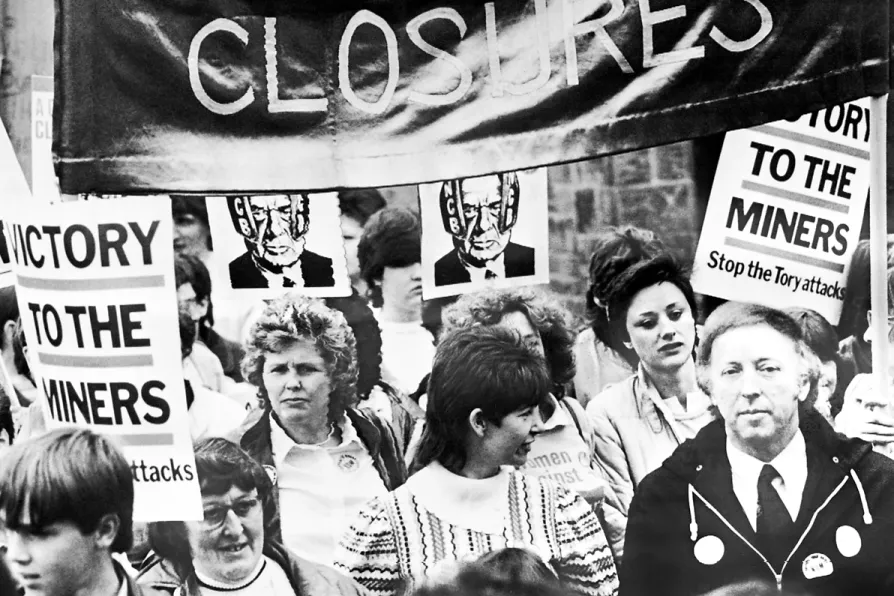As tens of thousands return to the streets for the first national Palestine march of 2026, this movement refuses to be sidelined or silenced, says PETER LEARY

 KNOW THY ENEMY: National women’s demonstration against pit closures in Barnsley
KNOW THY ENEMY: National women’s demonstration against pit closures in Barnsley
THERE are couple of lines in Mal Finch’s great song, Women of the Working Class: “In fighting for our future we found ways to organise. Where Women’s Liberation failed to move, this strike has mobilised.”
The strike in question was, of course, the Miners’ Strike of 1984-85. Some of the women in question were groups up and down the country, part of Women Against Pit Closures [WAPC]. The mention of Women’s Lib, though, is a lot trickier to pin down. The movement had already been demonised, not only in the tabloid press, but in working men’s clubs, workplaces and, hush-hush, even trade unions.
Spurious tales of bra-burning were rife, the strike for equal pay at Ford’s Dagenham plant had ruffled feathers, and there was a female prime minister in No 10.

MIKE QUILLE applauds an excellent example of cultural democracy: making artworks which are a relevant, integral part of working-class lives













